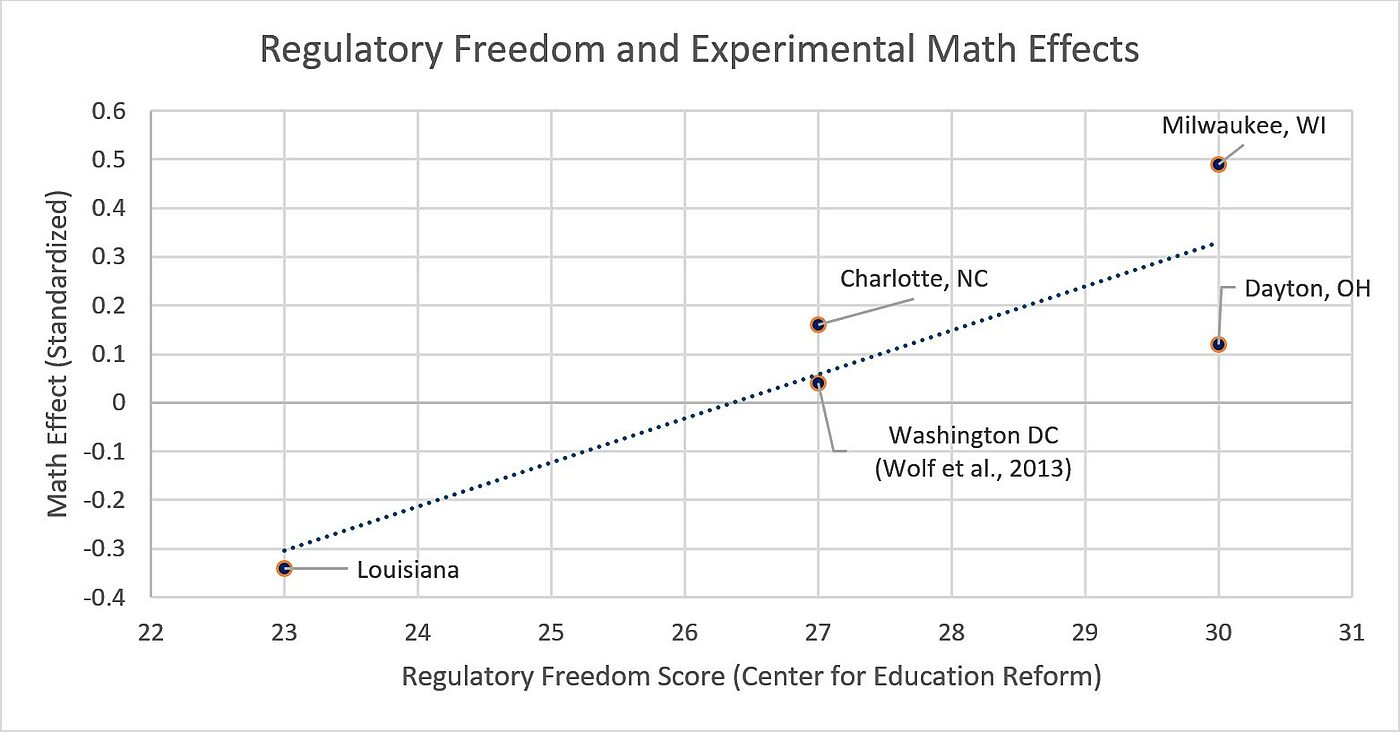Results of last week’s DC voucher study, showing some significant negative effects on standardized math tests, has school choice opponents in overdrive writing voucher obituaries. But at least some commentators, like the New York Times’ David Leonhardt, concede that choice works, but only if it is shackled to regulations they like. That choice works if carefully managed is perhaps an inevitable concession with the broad notion of school choice clearly in ascendance. However, the idea that regulated choice produces better outcomes flies in the face of basic economic theory and choice research.
Negative Impacts of Regulation
State requirements often come in the form of standardized test scores or restrictions on the types of teachers that may be employed. These regulations force schools to focus narrowly on state tests, which do not appear to matter in the long-run, and limit the supply of teachers, lowering educational quality while increasing costs.
As I illustrate below, programs with less restrictive voucher laws lead to more impressive experimental evaluations of student math achievement, perhaps because the costs of regulation ward off high quality private institutions:
Vouchers > Charters
In “free” public charter schools, bureaucrats decide how much education ought to cost per child, and each charter school is limited to accepting that amount, even if it is a high performing institution. The lack of price differentiation in charter schools is detrimental since it does not give institutions the incentive, nor the information, necessary to innovate or excel.
Unsurprisingly, the empirical evidence supports economic theory. While the DC Opportunity Scholarship has mixed results on test scores, the effects are clear for long-term outcomes: a massive 21-percentage point increase in graduation rates. Perhaps more importantly, private school choice programs in the United States have significantly improved communities overall through decreased criminal activity, reduced state expenses, and racial integration.
It should not astonish us that families are selecting schools that do not specialize in producing obedient test-taking machines. Naturally, it is likely that parents care less about standardized tests than the overall development of their children. In that sense, the recent evidence only reinforces the fact that markets behave as expected, even in the realm of education. If we really want to ensure that children have access to high quality schools, we ought to use the most powerful form of regulation that we have: parental choice.

